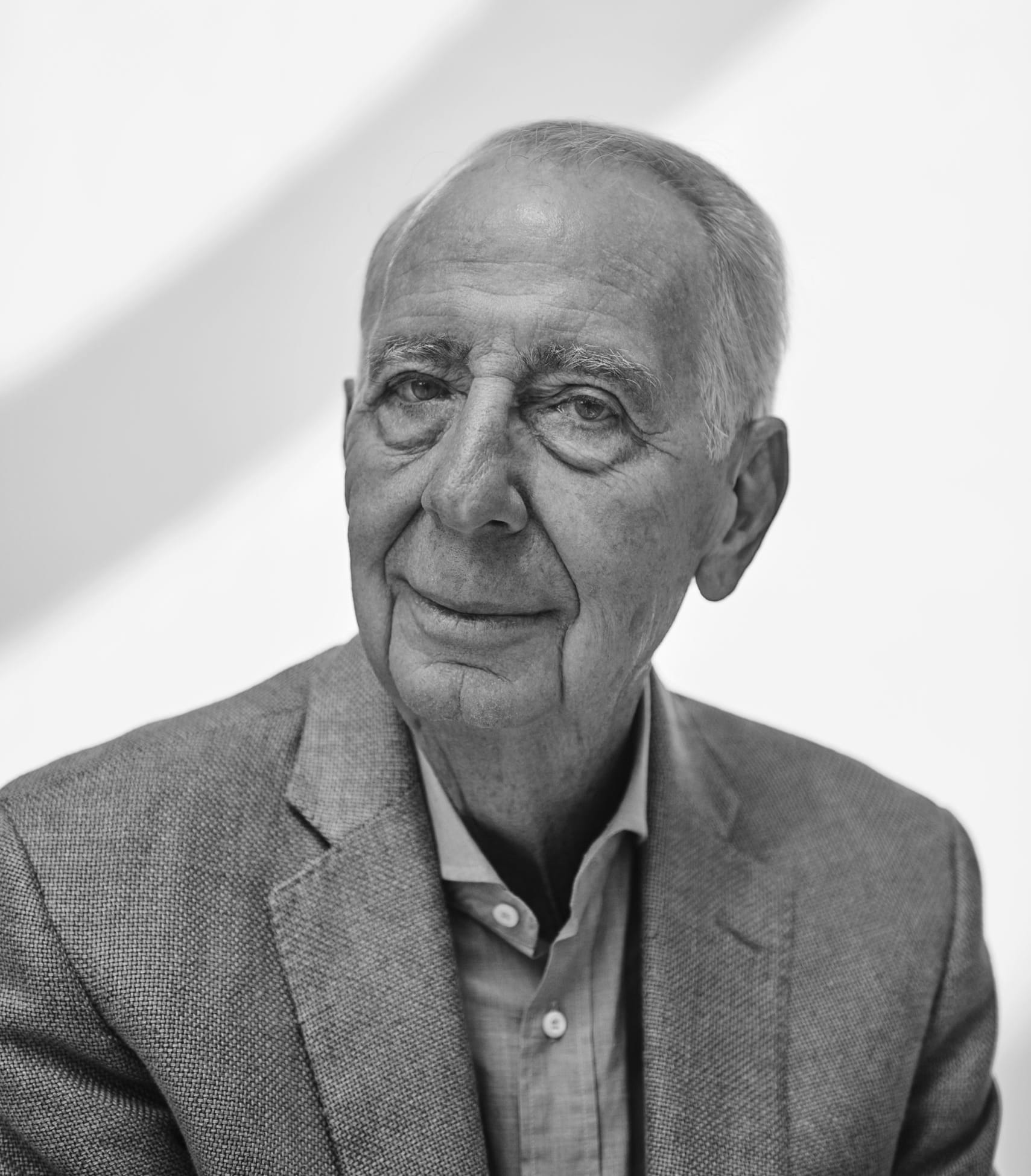After graduating as one of the first students to co-matriculate in engineering and business at Penn, Fred Warren was a pioneer in venture capital. In 1972, he co-founded Brentwood Associates, one of the oldest private equity firms in the U.S. and one of the original backers of Apple Computer. Warren went on to lead Brentwood’s entry into leveraged buyouts, founded the Sage Venture Partners venture capital fund, and with his wife, Robin, established the Warren Center for Network & Data Sciences at Penn to use technology and data science to improve the human condition. In an interview with Wharton Magazine and Knowledge@Wharton, the 81-yearold discusses his approach to risk, betting on Steve Jobs, and his advice about finding fulfillment.
During the Second World War, my father worked for a major oil company. He would take me to the oil fields to see how the wells were performing. If the wells were dry, the money spent on drilling them was lost; if they were gushers, they generated huge returns. Being exposed to such risk-taking as a 10-year-old helped me understand the concept of risk and reward, which I would become very familiar with during my lifelong career in venture capital.
Many friends with whom I grew up in Oklahoma City went to the University of Oklahoma. My math teacher convinced me to look at elite universities. I chose Penn because I wanted to study engineering, but I also wanted to learn about business and finance. I met with the deans of both schools to discuss the possibility of creating a unique combination. This led to the incubation of the dual-degree program between Penn Engineering and Wharton. It helped launch the Management and Technology program, which has been highly successful.
After graduating, I worked briefly on Wall Street in investment banking and was drawn to the high-risk, high-reward field of venture capital. The industry in the 1960s was relatively nascent — when I became a venture capitalist, there were fewer than 20 of us in the United States.
I am competitive but also very fair. I do not take advantage of people. When you take a risk, you lose, in some instances. I try to manage that loss ratio down and make big returns on the good investments. That is what venture capital is all about.
Our firm was among the earliest investors in the cable industry. We were also the co-lead in one of the earliest investment rounds in Apple Computer. At a time when most computers filled a room, Steve Jobs had the vision that someday, every man, woman, and child would have a personal computer. We invested in that vision with Apple’s Series A round, putting up $1 million of the total $7 million capital raise. In three years, Apple went public, and our shares were worth 25 times what we paid.
What makes the difference between a good venture capitalist and a great one is the ability to find and empower good managers. Management is the single biggest success factor in venture capital and the hardest to evaluate — ergo the risk factor!
I have tried to impress my children with two characteristics that have led to my success. First, I am willing to put myself in harm’s way — to try almost anything new and to be one of the first to do things. I have enormous curiosity and aspire to understand major life-changing technologies and the investments that go with them. Second, I chose a career that I love. I am still doing today what I was doing at age 23. I have encouraged my children to find something they have a passion for, because that can make success much more rewarding and long hours spent working feel less like work.
Published as “Fred Warren ME60 WG61” in the Fall/Winter 2020 issue of Wharton Magazine.

























